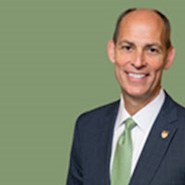
By Mona Savino & Thomas Smith, III
Situation
Two ASCE members wrote a paper that was published in one of ASCE's journals. The manuscript was based on the thesis of one of the authors-the primary author of the paper. The other author acted as the reviewer and supervising professor. An engineer who read the published paper contacted the journal staff, accusing the authors of plagiarizing his work, which had been published previously in two journal articles.
The editor and the associate editor of the journal in question conducted an initial investigation into the matter and determined that the evidence supported the contentions of the engineer lodging the complaint. The journal editor then forwarded all documentation to ASCE's Committee on Professional Conduct (CPC) and requested that it determine whether the matter constituted a violation of ASCE's Code of Ethics.
Upon notification by the CPC that an investigation into the matter was under way, the primary author of the manuscript asserted that he had never read the complaining author's works and that both his own work and the works of the complaining author were based on identical earlier works. Moreover, he asserted that his coauthor did not participate in any part of the work that was under investigation, a contention echoed by the coauthor.
Question
Was this use of identical technical information in a published manuscript without any acknowledgment of the earlier works a violation of ASCE's Code of Ethics?
Discussion
Yes. The guidelines to practice in category (e) of canon 5 of the Code of Ethics read as follows: "Engineers shall give proper credit for engineering work to those to whom credit is due, and shall recognize the proprietary interests of others. Whenever possible, they shall name the person or persons who may be responsible for designs, inventions, writings, or other accomplishments."
The CPC conducted an independent study of the papers involved, interviewed both authors of the paper in question as well as the member lodging the complaint, and solicited input from the journal editors. It determined that the sections of the manuscript at issue were identical to sections of the complaining author's earlier papers. The committee held that since ASCE members have an ethical duty to recognize the proprietary interests of others, credit should have been given to the complaining member's works.
In addition, although both authors of the work at issue asserted that the supervising author played no part in writing the sections of the paper called into question, the CPC determined that that author had the same ethical duty in the role of supervising author and therefore also was in violation of canon 5.
The CPC recommended that the memberships of the two authors be suspended for one year and that a statement crediting the work of the complaining member be published in the journal. However, because the authors apologized to the complaining member and agreed to publish a statement in the journal, the complaining member requested that no disciplinary action be taken against them.
The CPC took into account the wishes of the complaining member and changed its recommendation from a one-year suspension from membership for both authors to a letter of admonition to the primary author and a letter to the supervising author reviewing the responsibilities of that role and the requirements enjoined by the Code of Ethics. In addition, a statement was published in the journal apologizing for the lack of credit given to the complaining author and clearly stating the sections of the paper involved in this matter. Under ASCE's rules of policy and procedure, a member may consent in writing to the recommendation of the CPC and therefore waive his or her right to a hearing before ASCE's Executive Committee. If, however, the Executive Committee disagrees with the recommendation of the CPC and renders a different decision, the member is entitled to have a hearing on that decision. Here the coauthors signed a consent agreement, and the Executive Committee approved the decision.
© ASCE, ASCE News, December, 2005



